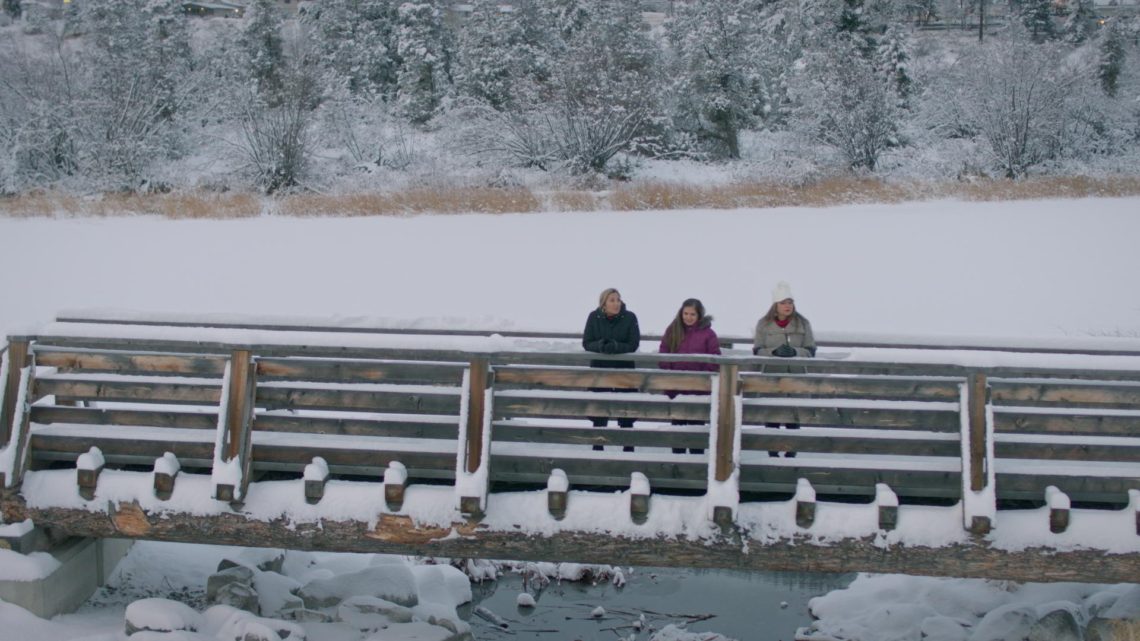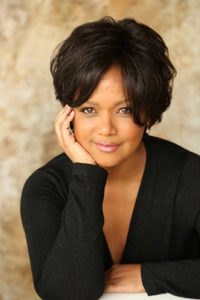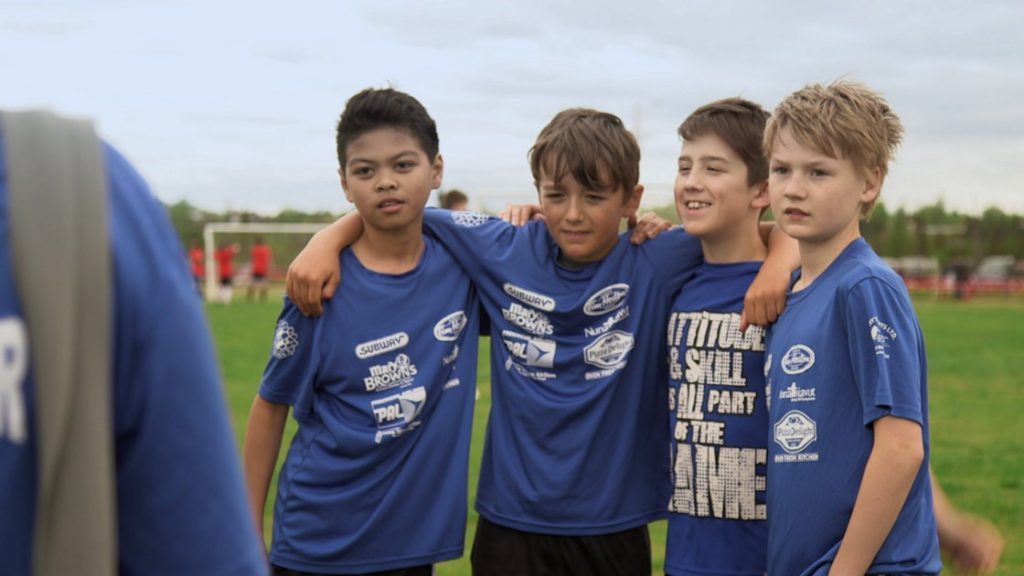
Reelworld Film Festival 2019 Interview: Tonya Williams
“We also have a hand in creating a new and more realistic vision on what being a woman is (and it’s not about being pretty arm candy for men to ogle). We need more female characters that are smart — not pretty and smart, but just plain old smart.”
In a recent conversation with a friend, we were discussing Black women directors and tried to see how many we could name off the top of our heads. We are two people involved in the film industry and still, the results were not the greatest.
That is why festivals like REELWORLD are so important.
Film festivals aren’t just about red carpets and glamour, there are industry conferences, panels and important networking events that can help filmmakers advance in their careers. But for people of colour, access is still an issue.
In 2001, Tonya Williams saw this need for more BIPOC people in front of and behind the camera and began REELWORLD FILM FESTIVAL as a way to increase access and champion new talent.
“We brought attention to something that we all knew was there, but a spotlight hadn’t been shone on it — and over the past 19 years, we have continued to be at the forefront of this issue.” — Williams, founder of REELWORLD FILM FESTIVAL.
REELWORLD FILM FESTIVAL has not only becoming Canada’s leading racially diverse festival, but it has helped to launch the careers of Dawn Wilkinson, Richie Mehta, Charles Officer, Samantha Wan, and Simu Liu.
“This year our program is 100% Canadian. With a renewed focus on Canadian filmmakers, the theme for our 2019 festival is Home.” —Ammar Keshodia, REELWORLD FILM FESTIVAL 2019 Lead Programmer.
We spoke with REELWORLD FILM FESTIVAL founder Williams on the origins of the festival, what has changed for BIPOC creators and where she sees the festival going in the future.
The 19th annual REELWORLD FILM FESTIVAL is running October 17–21.
Tell us a little bit about yourself, and how you got involved with filmmaking.
 Tonya Williams: I was born in London, UK to Jamaican parents who met there going to University. Since my earliest days I loved, loved, loved stories. I was that demanding two-year-old that needed several stories read to me each night. I taught myself to read when I was three years old, so I didn’t have to rely on my parents reading to me. My mother would leave me at a library when she went to do errands. I just loved books, and then I discovered TV and was obsessed. The power of images on screens has never left me to this day. But I never thought about working in the industry until I was sixteen years old and a casting director asked my mother if she could cast me in a TV commercial. My mother agreed and that was the first time I was aware that people actually did this kind of thing for a living. So after high school. I auditioned and got accepted into Ryerson drama program and the rest is history.
Tonya Williams: I was born in London, UK to Jamaican parents who met there going to University. Since my earliest days I loved, loved, loved stories. I was that demanding two-year-old that needed several stories read to me each night. I taught myself to read when I was three years old, so I didn’t have to rely on my parents reading to me. My mother would leave me at a library when she went to do errands. I just loved books, and then I discovered TV and was obsessed. The power of images on screens has never left me to this day. But I never thought about working in the industry until I was sixteen years old and a casting director asked my mother if she could cast me in a TV commercial. My mother agreed and that was the first time I was aware that people actually did this kind of thing for a living. So after high school. I auditioned and got accepted into Ryerson drama program and the rest is history.
Tell us about Reelworld Film Festival, and where the idea for the film came from.
TW: I have loved film festivals since I was 17 years old. They were the only places I could see foreign films back in the late ’70s, which I loved. So, when I had achieved my personal success as an actress, I wanted to create something that would help other BIPOC talents in Canada in the entertainment industry achieve their success, and my obvious idea was to create a film festival specifically to create opportunities for that underrepresented group.
How, if at all, do you feel the industry has changed for BIPOC content creators since you started the festival?
TW: What is great is that I have a perspective that dates back before the festival. I started my career in 1977 when there was little to no representation of BIPOC in front of or behind the cameras.
So by the time I started my film festival in 2001, there was a little more, but not as much as we see today. Reelworld was instrumental for some of that increased representation; we were at the forefront of a movement that was just in its infant stage. We worked with government funding agencies to create more access for these diverse voices. We brought attention to something that we all knew was there, but a spotlight hadn’t been shone on it — and over the past 19 years, we have continued to be at the forefront of this issue.
It’s not only about directors, actors, producers and writers, it’s about the great lucrative trade jobs of crews, drivers, caterers, carpenters, wardrobe, hair and makeup — these union jobs that need to open their doors to be more inclusive. It’s about the need for BIPOC representation in talent and literary agencies, as managers, entertainment lawyers, casting directors. For more BIPOC senior executives in broadcasting. Reelworld continues to shine a light on all of this, and we work to create more inclusion in every area in the Canadian entertainment industry.
What was the biggest challenge in creating this festival?
TW: Finding qualified BIPOC staff back in 2001 was one of my biggest hurdles. There weren’t the programmers, arts administrators, marketing and events talent I hoped there would be. I hadn’t realized that I would need to build in training as part of my business plan but I did and can now proudly say that lots of festivals across Canada have hired people who trained at Reelworld.

What advice do you have for young filmmakers starting in the industry?
TW: Figure out who you are first — what is it you want to say? And then write or find a story that speaks to your idea. Make sure your idea is wrapped around strong values (so I guess the first step is to find your strong values). Don’t take ANYTHING personal, no matter what. And always expect the worst. I find that by expecting the worst, nothing has ever been as bad as I imagined it could be. So, when others around me are devastated by something, I’m actually happy, because I thought that the situation was going to be way worse!
What have you learned over the 19 years the festival has been running?
TW: Never be surprised about anything. Expect the worst is going to happen and be pleasantly shocked and surprised when it doesn’t. I learned over the years that every staff and filmmaker have their own agenda that might not serve your organization. You don’t fire or get rid of them, but you have to make sure that as you are getting what you need from them, they need to get what they need from the experience.
I learned that no one is going to be as hard-working, dedicated or as passionate as you are about your idea — so accept that and just work harder than anyone else. I’ve learned that some people (including other women) might find it hard to have a woman as a boss and some people (even BIPOC people) might find it hard to have a BIPOC as a boss. Luckily one of my natural qualities, is that I always just ‘roll’ with what is happening. I don’t struggle against the current, I completely go with the current until I can navigate to the shoreline (meaning my destination) using the force/current that is already pushing me and that tends to work for me.
This year the programming is all Canadian, was this always the intention of the festival and why is it important to showcase Canadian talent?
TW: Yes — since the inception of Reelworld in 2001 that was always my plan, but I didn’t necessarily mention that to others. I worked towards that slowly. You have to remember back in 2001 I was told not to even use the word ‘racial’ that it was too controversial. So, I worked around everything. We always screened between 60–90% Canadian anyway so it was a short leap for me to get others on board when I said let’s make it 100% from here on in. I’m a big believer in slowly guiding people to your vision. Don’t be discouraged if people don’t get it at the start. If you stick with it, they will eventually. Timing is everything.

What do you hope for Reelworld Film Festival in the future?
TW: I hope to change the face of the Canadian entertainment industry on every level — from Senior Executives in Broadcast companies to hair and makeup on sets. We have so much more we can be doing. I had also started a sister company to Reelworld Film Festival called Reelworld Screen Institute and we’ll be doing much needed Studies, and professional development, symposiums, creating more collaboration with like-minded organizations. Then I would like us to bring our great BIPOC talent internationally, in the hopes of creating more coproduction, which in term will bring more economic development to Canada.
Can you tell us about some/all of the other amazing women who work on this festival?
TW: The team is really small. It’s me and Emily-Jane Williams (no relation) who is an amazing Development Director. Then we bring on contract workers to handle specific areas.
Whether it’s programming our E20 incubator program, Industry panels, our Youth programs etc. Not that I’m trying to, but we do tend to have way more women working for us than men. Out of our current 19 staff, only two are men! On our board of directors, we have approximately 11 board members and three are men.
Tell us about why you are a feminist and why it’s important to your work in film and television.
TW: I’m 61 years old so the word feminist means so many different things to so many different people, but I recognize that not only am I a feminist but my mother and my grandmother, were feminists as well. At 22 years old, my mother left Jamaica to study nursing in London, UK. She had never travelled anywhere before. No one in her family had ever travelled before, not even her brothers so that’s pretty incredible — we’re talking in the 1950s. So strong women were always a part of my life.
We need more women in the entertainment industry, but that is the only way to create change from the inside, it’s as simple as that. We bring a unique perspective to everything we do.
Women are more nuanced I believe, not so much hammer and nail but more glue and determination, so that adds more value to any production. We also have a hand in creating a new and more realistic vision on what being a woman is (and it’s not about being pretty arm candy for men to ogle). We need more female characters that are smart — not pretty and smart, but just plain old smart.
What are you working on now/next?
TW: I’m working on the 20th anniversary year of Reelworld. I want to make it special and about applauding our success stories. I’ve also taken most of my 50’s off from working on productions. It was just more about me having a quality of life. But now as I enter my 60’s I’m eager to work on productions again, but on stories I’m passionate about. You start thinking about legacy a lot in your 60’s and I want to be part of stories that have universal themes that can be watched an appreciated a 100 years from now.
Finally, recommend one #MUFFApproved** film for our blog readers!
TW: Check out the series Unbelievable on Netflix — loved it! Powerful! Women at our best!
Keep up to date with Tonya Williams: Facebook | Twitter
*This post was originally featured on The MUFF Society.*

